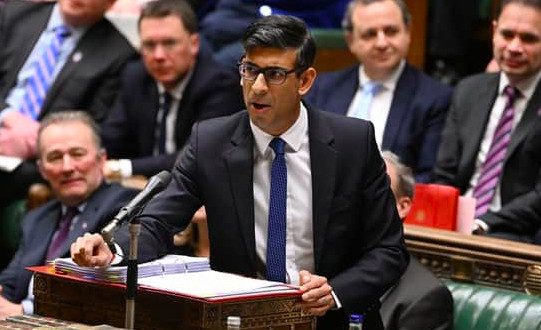The UK government has been warned of technical shortfalls and entry barriers in its path to unlocking an open banking system to reducing SME costs and to change retail banking processes benefitting the consumer.
PaymentExpert drills down on the ‘Future of Payments’ report by Joe Garner, former Chief Executive of Nationwide, on how the UK can overcome existing challenges and deliver banking transparency and efficiencies across all business sectors.
The Open Banking gap
Making inroads in the adoption of Open Banking technology is one of the key recommendations of the review. In particular, there is an ‘urgent gap’ on Open Banking in the UK’s player protection landscape, which was described as ‘fragmented, complex and variable’.
Although no contributors to the review have been named, the report attributed a quote to one likening the absence of consumer protection on Open Banking to “Tesla launching a new model without a seat belt”.
The review outlined: “We believe that there is a need for some kind of purchase protection or dispute resolution for payments via Open Banking. While it does not need to necessarily be to the same level of cards, this is currently a gap.
“In the absence of clarity on this point, there is a risk that the new APP fraud rules will be misused and invoked to cover a much wider range of claims than the intended scope. This could be severely problematic.”
The review also added that there is a need for ‘some kind of purchase protection or dispute resolution’ for Open Banking payments, the lack of which is leaving businesses open to the risk of fraud.
An absence of dispute resolution procedures on Open Banking will not be ideal for consumers or businesses. The review’s chief concern is that this gap will lead to payments providers building artificial delays into the customer journey, causing ‘annoying levels of friction’ for the end user.
“This would prevent Open Banking reaching its potential,” the review asserted, calling for greater cooperation across the UK’s relevant financial authorities and the industry itself.
In particular, the Joint Regulatory Oversight Committee (JROC) and HM Treasury should work closely with industry stakeholders to ensure that merchants and consumers are not left behind with Open Banking adoption.
Two birds, one stone
The payments review of course has implications beyond the immediate realm of the payments industry, particularly regarding its recommendations on the adoption of Open Banking.
The review was launched in July 2023, three months after the publication of the Gambling Act review – which, unlike the payments review that was concluded in under four months, took over two years to complete.
These reviews are linked in the sense that both have called for greater consumer protection, but even more so in that Open Banking has been outlined as a solution to achieving the Gambling Act review’s proposed finance risk checks measure.
The UK Gambling Commission (UKGC) has proposed that when credit reference checks are required to assess whether a gambler is financially secure enough to bet, customers will be requested to allow limited data sharing by third-party Open Banking firms.
Open Banking is not the only area the review states that the UK has fallen behind in, however – the country is currently ranked nine in the number of account-to-account transactions per capita, and is expected to fall to 17th by 2027.
The UK has some catching up to do in this area. For example, other nations have simplified the consumer experience by using national identifiers such as ID numbers of aliases and proxies like mobile numbers or email addresses.
Countries such as India, Sweden and Brazil have been making inroads in this area – the latter’s customer advocacy on account-to-account transfers stands at 92% compared to the UK’s 77% – and the British sector faces becoming outdated.
A suggested remedy to this is medium term improvements in the bank transfer journey – something which the review believes can be solved by further development of Open Banking.
UK payments stakeholders have been given two tasks. Firstly, solve the consumer protection gap in Open Banking so the tech can be effectively used for account-to-account transactions. Secondly, push for a form of digital ID so payments processors can have a digital identifier.
“Open Banking is starting to deliver more user-friendly account-to account payment journeys that can be fulfilled in under a minute with high security,” the report emphasised, and although identifying areas for improvement in Open Banking the review’’s authors are still confident in the UK sector.
“The UK is in a leading position on Open Banking, with an encouraging 200 third party providers registered and approved. Recent Open Banking journeys in the UK are beginning to rival some of the best in class around the world.”
Shedding weight
UK fintech is a rapidly growing sector, something which the government has repeatedly acknowledged. In yesterday’s budget, UK Chancellor of the Exchequer, Jeremy Hunt, spoke about the need for investment in this sector.
As the review stated: “The payments fintech sector is large, commercially significant, and a growing British success story in the global financial services space.”
To thrive even more, the UK fintech sector needs a regulatory adjustment – specifically a streamlining and lightning of regulation, which many respondents to the review stated had become a heavy burden.
The application of the APP Code to startups was cited as one specific example of the burdens faced by UK fintechs, whilst the general ambiguity of regulations is also ‘causing frustration’ for firms.
“The weight and complexity of the landscape is a hindrance to growth,” Garner’s review continued. “We heard from many contributing Fintechs that the sheer volume and weight of regulation is almost impossible to navigate.
“Large firms with considerable resources have cited the challenges of the complex landscape, and therefore it is hard to imagine how a single entrepreneur could prioritise such activity.”
A UK-wide, top-down approach, a National Payments Vision and Strategy, is the ideal response to these regulatory challenges, the review explained. It is hoped that this aligns priorities across the fintech space and simplifies the landscape, which in time should help foster growth and innovation.
Based on statements made by PM Rishi Sunak and Chancellor Hunt over the past year, and even further back in their political careers, the government is eyeing up fintech as a core sector in its vision for the British economy.
Similar to its review of the nation’s gambling legislation, however, the government has a number of recommendations from regulators and industry stakeholders to onboard if its ambitions are to be realised.









